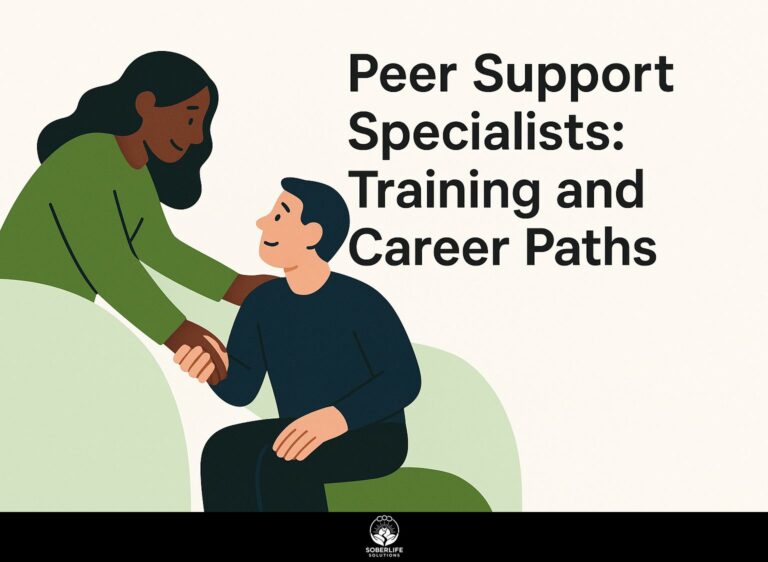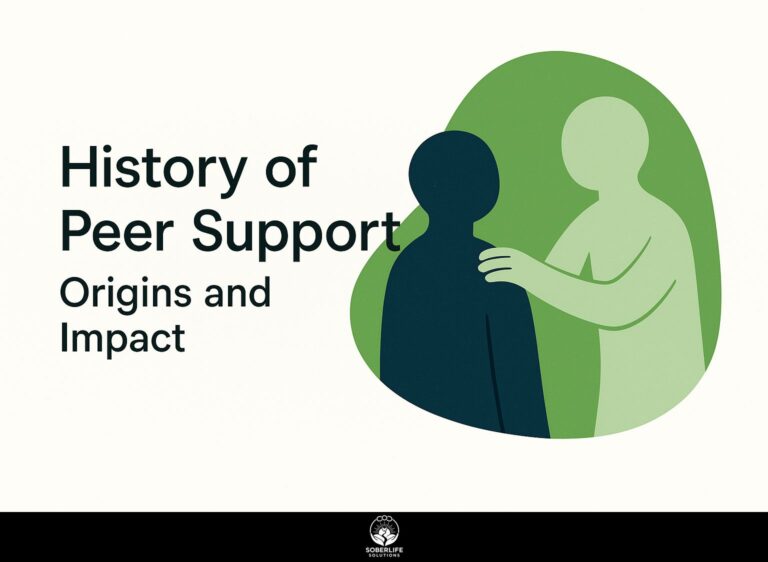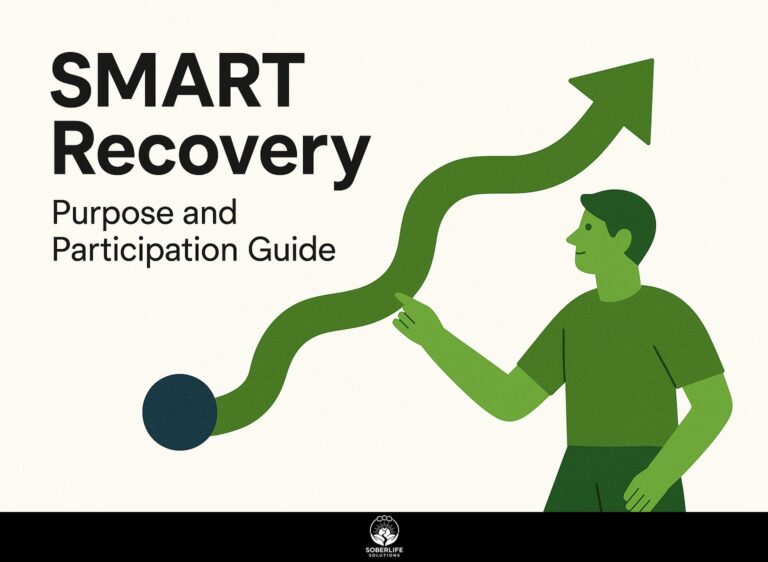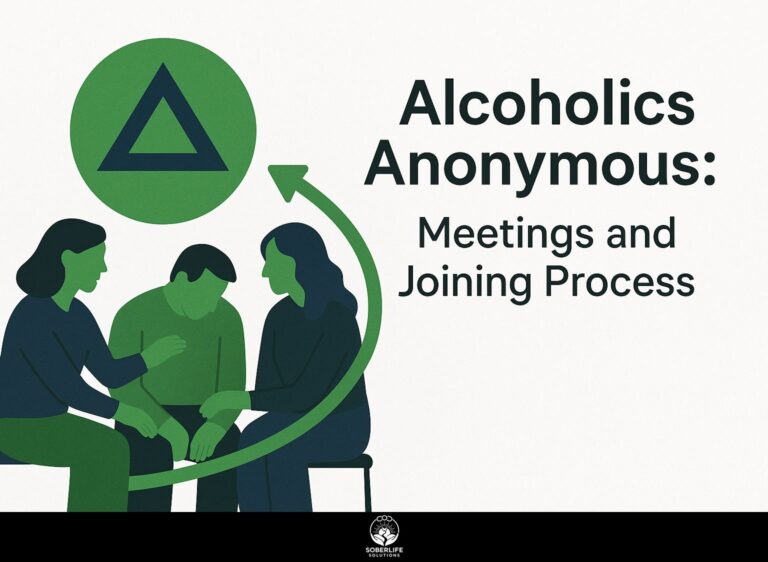Peer Support Groups for Families: Support for Loved Ones
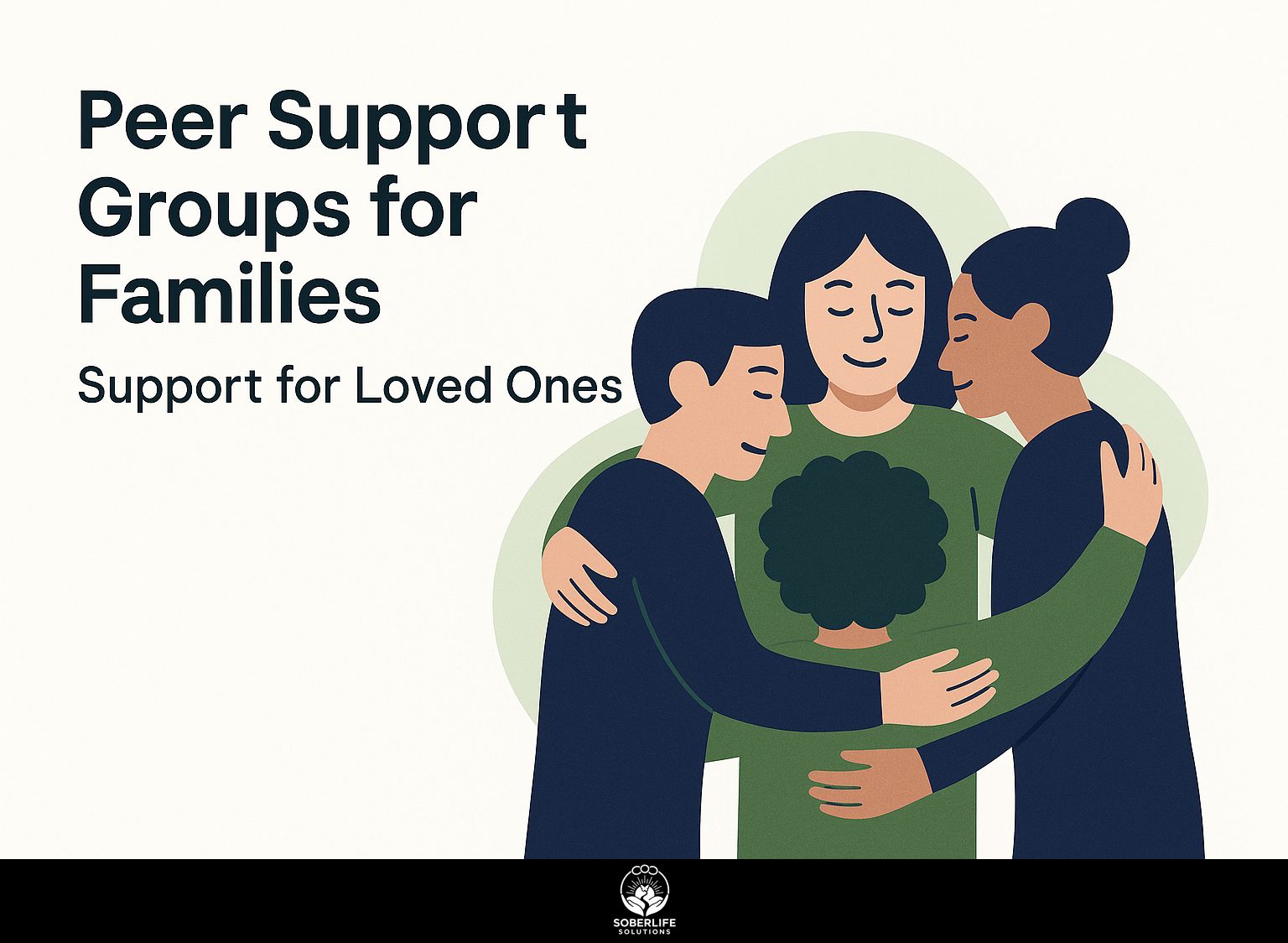
Dealing with the difficult aspects of serious illness can be very stressful for families, especially those caring for cancer patients. Peer support groups provide an important place for family and friends to talk, share stories, and find comfort in the community. Organizations such as the Alzheimer’s Association, American Cancer Society, and American Heart Association offer information and support for families to get involved with them. In this article, we will look at the advantages of peer support, the different types of groups you can join, and how to find or begin one for your family.
Key Takeaways:
Definition and Purpose
Peer support groups are organized gatherings where individuals can share their experiences and feelings related to serious illnesses like cancer or Parkinson’s Disease.
These groups have important roles. They create a welcoming environment for discussing personal experiences, helping participants feel part of a group.
Members often experience reduced feelings of isolation as they connect with others facing similar challenges. These groups offer emotional validation, allowing individuals to express their fears and frustrations in a supportive environment.
Many groups also invite health professionals to share their knowledge, improving the support experience. Consider joining local chapters or online forums to find a group that fits your needs. Virtual recovery groups are trending, offering convenient options for peer support as highlighted in recent discussions. Peer support interventions have been shown to significantly improve quality of life and reduce depression, as highlighted in a study published by ScienceDirect.
Importance for Families
For families of patients, joining peer support groups can greatly reduce feelings of isolation and hopelessness, strengthening their ability to cope emotionally.
These groups offer a safe space to share experiences and strategies for coping. For example, families can feel at ease talking about common difficulties and learning from others facing the same issues.
Tools like online forums or local meetups can improve these discussions. Tools like organized conversations and knowledgeable leaders can improve communication and help people understand ideas more clearly.
Families often express that they feel more ready to manage care responsibilities because they receive helpful advice specific to their needs, leading to improved emotional health.
Benefits of Peer Support for Families
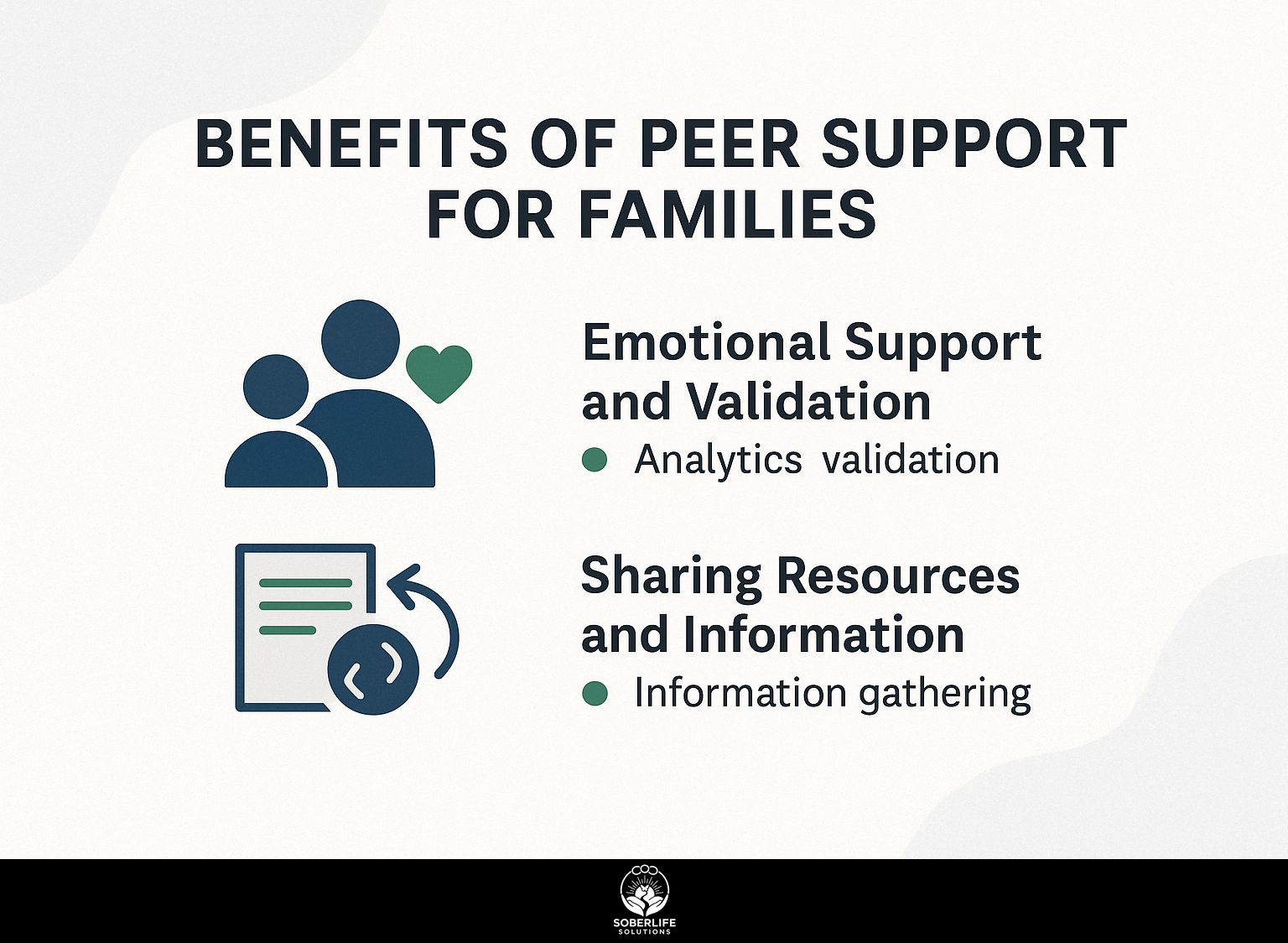
Participating in peer support provides families with many advantages, such as emotional help and important details that can improve their caregiving experience. This support system can be particularly beneficial in the context of addiction recovery, where sober support systems play a crucial role in offering guidance and encouragement.
Emotional Support and Validation
People in peer support groups often say they feel recognized and accepted in their feelings, which is important when facing the difficulties of caregiving.
This sense of community can significantly reduce feelings of isolation, a common issue for family caregivers. Studies indicate that caregivers who actively participate in these groups report a 30% decrease in anxiety and a 40% drop in depression symptoms.
To help with this, caregivers can use platforms like Meetup or local community centers to find support. Participating in organized talks and sharing experiences helps members build ways to handle stress, leading to stronger coping skills and better mental health, as noted by Mayo Clinic.
Sharing Resources and Information
Peer support groups help people share important resources and information, such as health care advice, local services, and organizations focused on specific diseases like the American Cancer Society.
Members often recommend tools such as the CareZone app for organizing medications and appointments, or local chapters of the National Alliance on Mental Illness (NAMI) for mental health support.
Using these resources can improve caregiving by offering specific advice and linking to local services.
A shared Google Drive lets group members store useful articles and information about nearby services, helping everyone learn from each other and receive assistance suited to their needs.
Types of Peer Support Groups
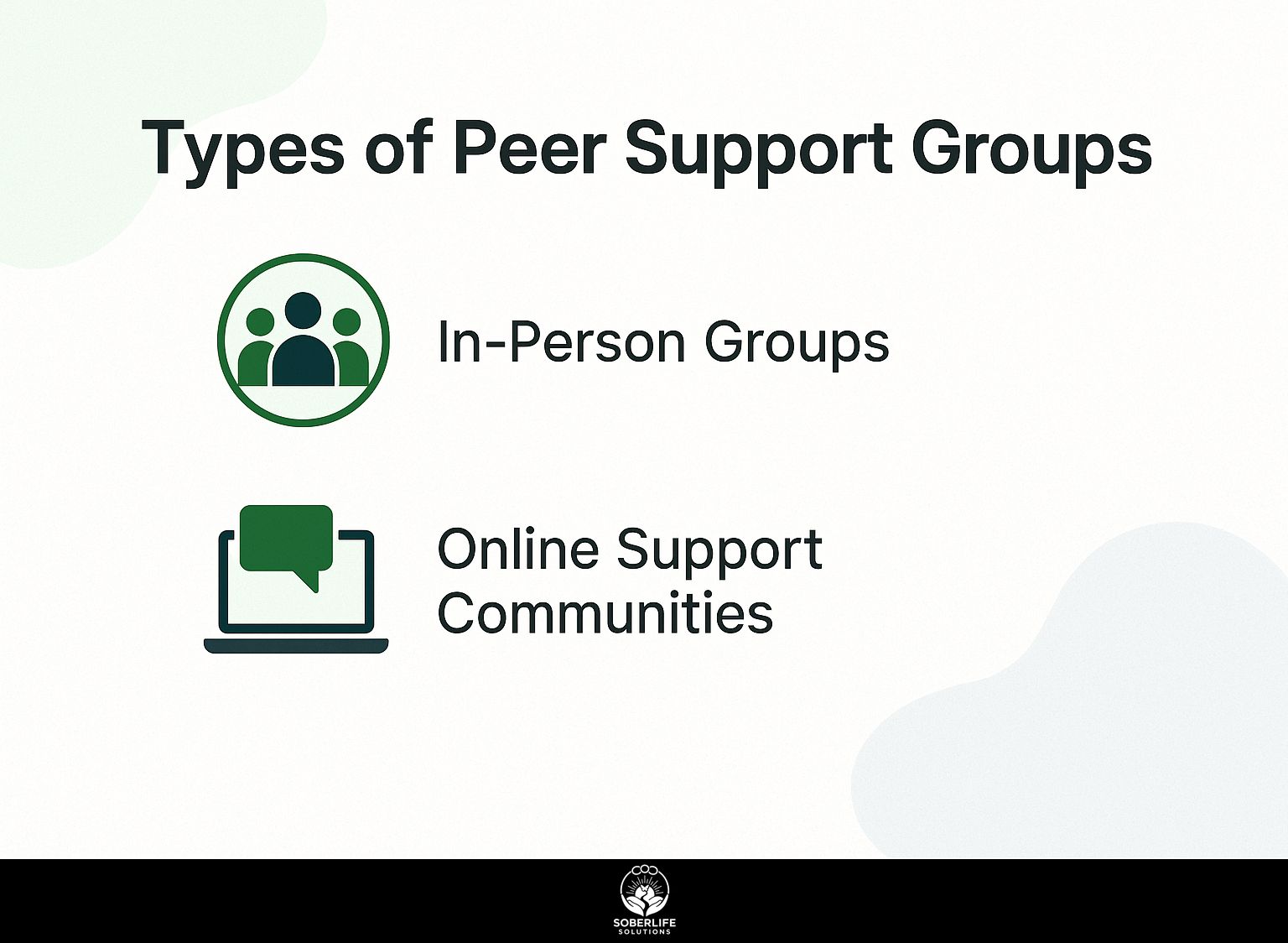
Peer support groups can be divided into face-to-face meetings and online communities.
Both types have their own advantages and are accessible to participants. For those interested in exploring these options further, the benefits and accessibility of online communities can be better understood by exploring our guide on how to find and access online A.A. meetings globally.
In-Person Groups
Meeting in-person for peer support groups allows people to connect directly, building stronger relationships and offering quick emotional help to those involved.
These gatherings allow caregivers to share experiences and advice, creating a sense of community.
To find a local chapter, start by visiting websites like the Alzheimer’s Association, where you can locate meetings by zip code. Additionally, the National Alliance on Mental Illness (NAMI) offers a helpful resource to find local support groups. Social media platforms, local libraries, and healthcare facilities often advertise support sessions.
When you join in, pay attention to others and talk about your own difficulties; this back-and-forth makes the group more successful. Attend often, as being consistent creates trust and makes relationships stronger.
Online Support Communities
Online support communities offer flexible access to emotional support, allowing caregivers to connect from anywhere at any time, often through platforms like Facebook or dedicated forums.
These groups help build connections and offer resources specifically designed for caregivers’ specific needs. For example, a Facebook group might share links to webinars about self-care or articles on coping methods, improving members’ experiences.
Websites like Reddit or specific discussion boards let people remain anonymous, which makes it simpler for them to tell personal experiences without worrying about being judged.
Group leaders should frequently monitor participation and provide clear updates to create a respectful and supportive atmosphere, helping caregivers feel comfortable when asking for help.
How to Find Peer Support Groups
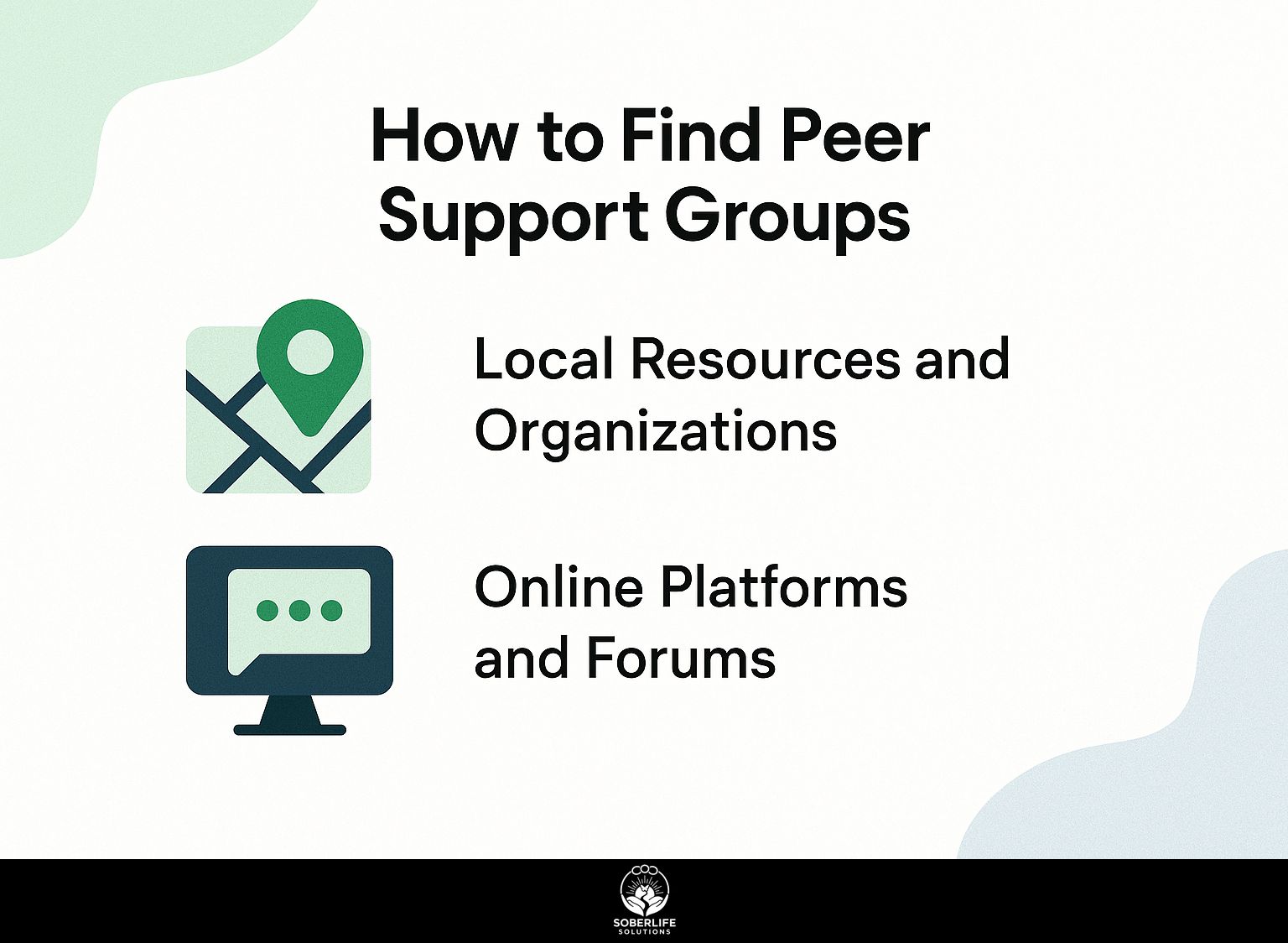
To find the best peer support group, use both local resources and online platforms that match your particular needs and circumstances. If you’re starting your journey with Alcoholics Anonymous, you might benefit from our comprehensive guide for beginners on how to find A.A. meetings, which provides valuable insights and tips.
Local Resources and Organizations
Many local chapters of organizations such as the American Cancer Society and the National Kidney Foundation provide in-person support groups for families.
To find these resources, start by visiting the websites of these organizations, where you can locate your nearest chapter and their contact information.
Many chapters list their upcoming events and support groups online. Check community bulletin boards in places like libraries or healthcare facilities, which often post flyers about local support groups.
Your healthcare provider can connect you with support groups. They usually know different organizations and can suggest groups that fit what you’re looking for.
Online Platforms and Forums
Popular online platforms such as Reddit, Facebook, and health-focused forums have many support groups for people dealing with certain illnesses and for caregivers.
On Reddit, search for subreddits related to your condition, such as r/Cancer or r/ChronicPain, where users actively share experiences and advice.
Facebook groups are also effective; simply type your condition into the search bar and filter results to ‘Groups’ for community support.
Websites such as HealthUnlocked provide specific discussions. Participate to find many support groups.
To get involved, start by introducing yourself, tell your story, and ask meaningful questions. This helps you connect with others and motivates them to join in.
Starting Your Own Peer Support Group
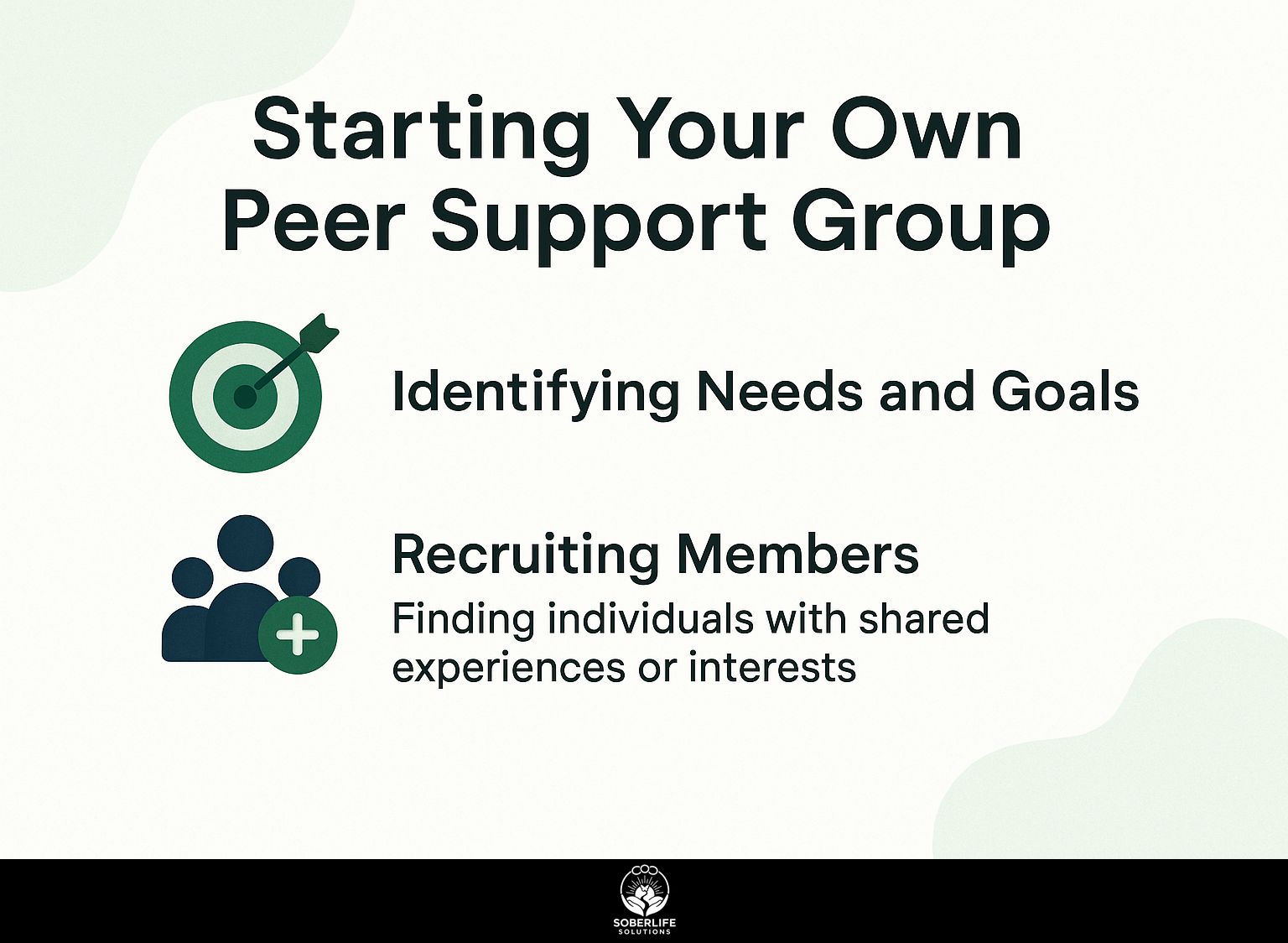
Creating a peer support group can be an important resource for caregivers and their loved ones, focusing on the unique needs and experiences of your community.
Identifying Needs and Goals
To effectively start a peer support group, clear identification of the needs and goals of prospective members is essential for shaping its structure and focus.
- Start by doing surveys to find out what possible members want from the group. Tools like Google Forms or SurveyMonkey can make this process easier.
- Consider hosting informal interviews or focus groups to discuss specific needs and desired outcomes. Work with local health groups to better understand community challenges.
- Set clear aims, like offering emotional help, sharing materials, or holding educational sessions. Write down these results to make a group plan that matches the members’ goals.
Recruiting Members
Recruiting members for a peer support group involves strategic outreach through local resources, online platforms, and community events to build a diverse participant base.
- Begin by using social media sites such as Facebook and Instagram to make interesting posts about the group’s goals and motivate people to share them.
- Design eye-catching flyers to distribute at local cafes and libraries, ensuring they include contact information and meeting times.
- Attend community events such as health fairs or public workshops to connect directly with potential members.
- Establish partnerships with healthcare providers who can refer individuals in need of support.
Combining these efforts creates a powerful outreach strategy to attract diverse participants.
Challenges in Peer Support Groups
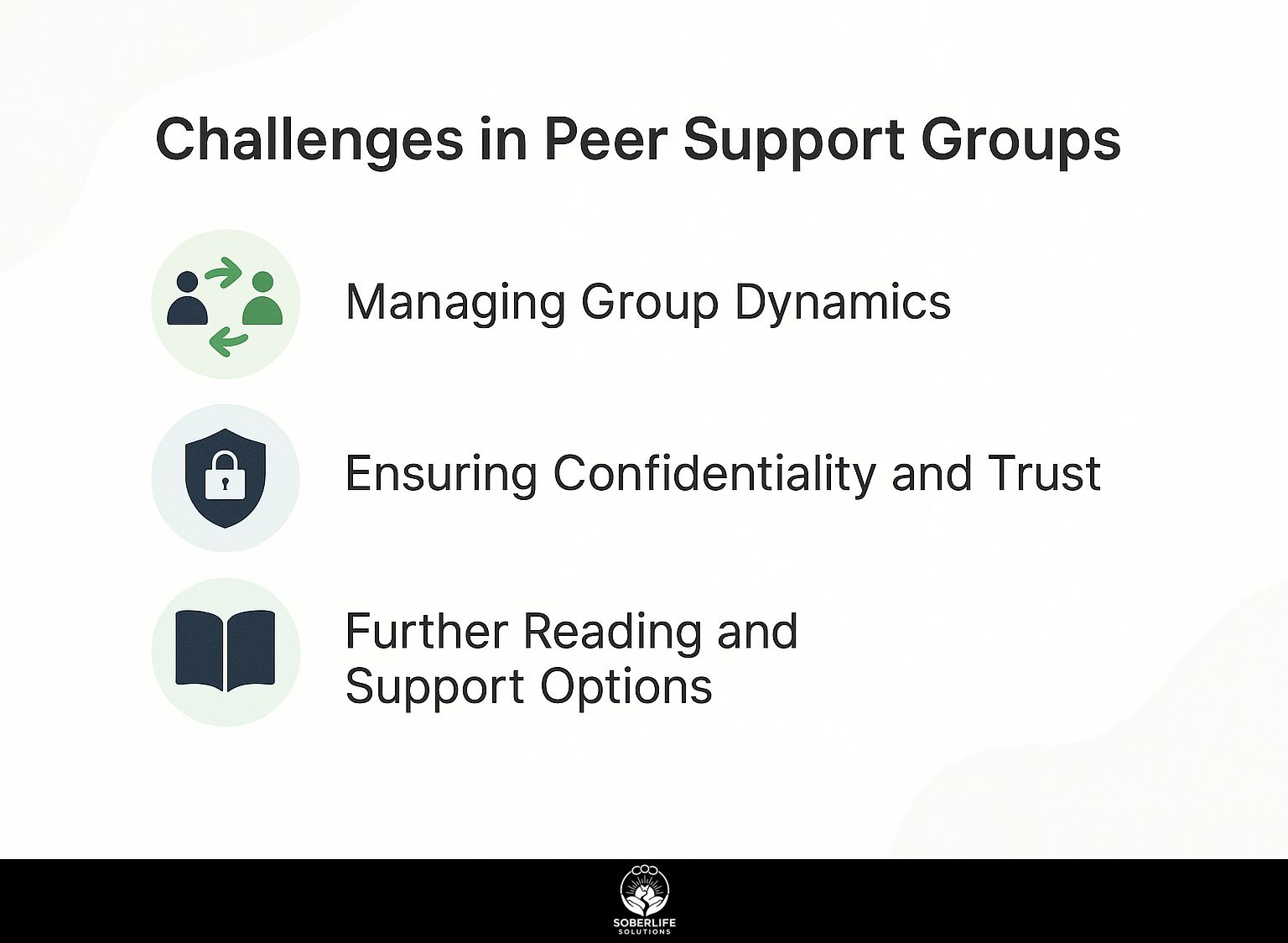
Peer support groups provide many advantages, but they also deal with issues like how the group interacts and keeping members’ information private. Understanding how to effectively join and run these groups can help navigate these challenges, as detailed in our complete guide on peer support groups.
Managing Group Dynamics
Managing group discussions is important to make sure everyone feels listened to and cared for, especially in delicate conversations.
To create a positive setting, begin by setting clear rules that promote respect and active listening.
Facilitate open discussions by using structured formats, such as round-robin sharing, where each member has a chance to voice their thoughts without interruption.
In cases of tension, employ conflict resolution techniques like summarizing differing viewpoints and finding common ground.
Online polls can assess group views and identify subjects that require further discussion, ensuring everyone gets an opportunity to participate.
Ensuring Confidentiality and Trust
Creating trust and privacy within the group is important so that members feel comfortable sharing their personal stories.
To maintain this confidentiality, consider implementing confidentiality agreements at the start of the group. Each member can sign a document that reinforces the importance of discretion.
Regularly reminding participants of these agreements during meetings can help reinforce the commitment to confidentiality. Creating a safe space for open dialogue without judgment encourages members to share freely.
Tools like anonymous feedback forms can collect opinions on how the group interacts, helping to maintain a respectful environment.
Further Reading and Support Options
For anyone wanting to learn more about peer support, there are many resources and organizations like Living Beyond Breast Cancer and the U.S. Pain Foundation that provide detailed information.
These organizations provide various avenues for support, including online forums, local support groups, and educational resources.
For example, Living Beyond Breast Cancer organizes online meetings where people can talk about their experiences and learn from others dealing with similar issues.
Similarly, the U.S. Pain Foundation provides a helpline and a place for connecting with others who know the challenges of living with chronic pain.
Engaging with these resources can provide emotional validation and practical tips for managing health conditions.
Frequently Asked Questions
What are peer support groups for families?
Peer support groups for families are structured meetings where individuals with a shared experience, in this case being a loved one with a mental health condition, come together to provide support, share resources, and offer guidance to one another.
What are the benefits of joining a peer support group for families?
Joining a peer support group for families can offer a feeling of belonging, acceptance, and shared experiences from others facing similar challenges. It can give useful advice and resources for handling the difficulties involved in helping a loved one with a mental health issue.
Who can join a peer support group for families?
Anyone who has a family member or loved one with a mental health condition can join a peer support group for families. These groups are open to all individuals, regardless of their relationship to the person with the condition.
How often do peer support groups for families meet?
The frequency of meetings can vary, but most peer support groups for families meet on a weekly or bi-weekly basis. Some groups may also have online meetings or offer phone support for members who are unable to attend in-person meetings.
Is it necessary to share personal experiences during group meetings?
No, it is not necessary to share personal experiences during group meetings. Some individuals may prefer to listen and observe, while others may feel comfortable sharing their own experiences. The level of participation is completely up to each individual and there is no pressure to share if one does not feel comfortable doing so.
Are peer support groups for families confidential?
Yes, peer support groups for families are confidential. What is shared in the group stays within the group. This creates a secure and helpful space where people can share and find help without worrying about being judged or talked about by others.

